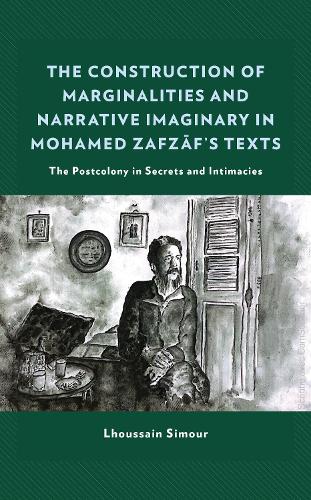
The Construction of Marginalities and Narrative Imaginary in Mohamed Zafzafs Texts: The Postcolony in Secrets and Intimacies
(Hardback)
Publishing Details
The Construction of Marginalities and Narrative Imaginary in Mohamed Zafzafs Texts: The Postcolony in Secrets and Intimacies
By (Author) Lhoussain Simour
Bloomsbury Publishing PLC
Lexington Books
28th July 2022
United States
Classifications
Professional and Scholarly
Non Fiction
Islam
History of religion
Politics and government
892.736
Physical Properties
Hardback
166
Width 160mm, Height 228mm, Spine 20mm
417g
Description
This book works on the interface between literature, culture, and discourse. It is entirely devoted to the reading of some of Zafzfs novels that came out in the early 1970s and in the late 1980s, and attempts to chart the trajectory of the aesthetic imaginary of an exceptional writing experience that marked out the literary and cultural landscape in Morocco and in the Arab world for long. Zafzf and his writings are associated with aspects of the country's social contradictions, cultural transition, and political transformations, expressed through various aesthetic patterns that translate the crisis of the intellectual within a society weighed down by poverty, political instability, social conflict, and cultural disintegration. Given the relative scarcity of resources that are written in English about the Moroccan novel of Arabic expression, this work is an attempt to theorize and approach in an interdisciplinary manner a set of narratives that have not been previously explored in western academia. Using postcolonial discourse as approach and a metaphor of reading, it draws attention to the often-neglected texts in Moroccan literature of Arabic expression and explores their aesthetic, discursive, and cultural implications that rethink and disturb canonical formations of literary texts in Morocco. This book will be adopted in the now burgeoning fields of the Humanities, and will provide useful resources for courses about Moroccan Literature and culture.
Reviews
Lhoussain Simour brings a depth and breadth of knowledge about Moroccan fiction to his study of the works of Mohamed Zafzaf. Too often, Arabic language writing is passed over in English language scholarship on Morocco and this study demonstrates the vibrancy of writing in Arabic, especially the complex interplay of aesthetics and politics in fictional writing. The chapters of the book trace Zafzafs novelistic trajectory, and offer a thorough exploration of Moroccan literary history as well as its dynamic literary scenes, particularly in the 1970s and 1980s. I learned a great deal from Simours study and recommend it.
-- Michelle Hartman, McGill UniversitySimour offers readers of English a detailed and carefully nuanced study of the life and fictional works of Mohamed Zafzaf, one of the primary participants in the early stages of the development of a tradition of modern Moroccan Arabic fiction. However, even within that more limited regional context, the author notes that Zafzafs contribution has thus far been somewhat overlooked, whence the significance of this study.
-- Roger Allen, University of PennsylvaniaSimour offers a cogent and expansive study of the works of Mohamed Zafzaf one of Moroccos most famous twentieth century Arabic-language novelists and poets. From examining the environments of the poor and underprivileged in the Morocco of the 1970s and 1980s during the infamous Years of Lead under King Hassan II, to Zafzafs more social-realist texts of the early 1990s, Simour reveals the literary world of an author little known to anglophone readers. Zafzafs writing reflects a postcolonial Morocco in the effervescence of transformation as populated by a newly liberated culture able to engage with the social, political, and historical challenges of its era.
-- Valrie K. Orlando, University of MarylandAuthor Bio
Lhoussain Simour is associate professor of English and cultural studies at Hassan II University of Casablanca, Morocco, and senior research associate at the University of Gibraltar.
